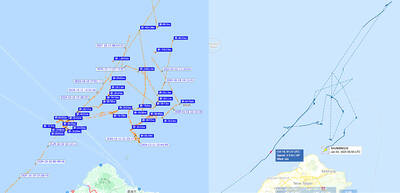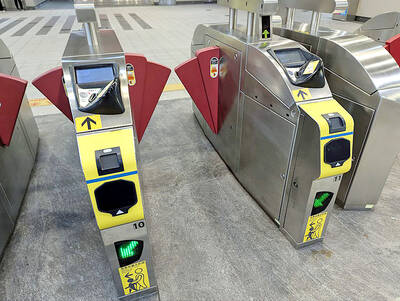Three Chinese Nationalist Party (KMT) legislators yesterday urged the Department of Health (DOH) and the Bureau of National Health Insurance (BNHI) to cover the cost of target therapy for breast cancer patients in the initial stages of the illness.
KMT Legislator Huang Chao-shun (黃昭順) told a press conference that breast cancer had become more and more common among young and middle-aged women, causing a great burden to patients’ families and society as a whole.
Although target therapy has proven effective in lowering the mortality rate of such cancer by 33 percent, the National Health Insurance only covers the cost of the therapy after a patient’s cancer transfers to other organs, Huang said.
The regulation has prevented numerous patients who are unable to afford the treatment from pursuing therapy, she said.
Information from the DOH shows that breast cancer patients receiving the therapy usually need to go through 12 courses of treatment at a cost of NT$1.1 million (US$31,680) a year.
Covering the cost of the therapy in the initial stages of the cancer would benefit about 1,200 breast cancer patients in the nation every year and cost about NT$900 million a year, KMT Legislator Yang Chiung-ying (楊瓊瓔) said.
Chang Tsai-wang (張財旺), a breast surgeon at National Cheng Kung University Hospital, said a number of clinical trials abroad had shown that the therapy might be effective in lowering the risk of breast cancer transfer by 52 percent and the mortality rate by 33 percent.
“It is unreasonable for the National Health Insurance not to cover the therapy for breast cancer patients until their illness is terminal,” Chang said.
In response, Yang Hui-fen (楊慧芬), director of the DOH’s National Health Insurance Task Force, said medical experts at the BNHI still needed to conduct a clinical economic evaluation and clinical tests to determine whether the National Health Insurance should cover the therapy as suggested by the legislators.
“The DOH respects the opinions of the experts,” Yang said.
Shih Ju-liang (施如亮), a section chief at the BNHI, promised at the conference to communicate the legislators’ suggestions to her superiors at the bureau.

A strong continental cold air mass and abundant moisture bringing snow to mountains 3,000m and higher over the past few days are a reminder that more than 60 years ago Taiwan had an outdoor ski resort that gradually disappeared in part due to climate change. On Oct. 24, 2021, the National Development Council posted a series of photographs on Facebook recounting the days when Taiwan had a ski resort on Hehuanshan (合歡山) in Nantou County. More than 60 years ago, when developing a branch of the Central Cross-Island Highway, the government discovered that Hehuanshan, with an elevation of more than 3,100m,

Death row inmate Huang Lin-kai (黃麟凱), who was convicted for the double murder of his former girlfriend and her mother, is to be executed at the Taipei Detention Center tonight, the Ministry of Justice announced. Huang, who was a military conscript at the time, was convicted for the rape and murder of his ex-girlfriend, surnamed Wang (王), and the murder of her mother, after breaking into their home on Oct. 1, 2013. Prosecutors cited anger over the breakup and a dispute about money as the motives behind the double homicide. This is the first time that Minister of Justice Cheng Ming-chien (鄭銘謙) has

SECURITY: To protect the nation’s Internet cables, the navy should use buoys marking waters within 50m of them as a restricted zone, a former navy squadron commander said A Chinese cargo ship repeatedly intruded into Taiwan’s contiguous and sovereign waters for three months before allegedly damaging an undersea Internet cable off Kaohsiung, a Liberty Times (sister paper of the Taipei Times) investigation revealed. Using publicly available information, the Liberty Times was able to reconstruct the Shunxing-39’s movements near Taiwan since Double Ten National Day last year. Taiwanese officials did not respond to the freighter’s intrusions until Friday last week, when the ship, registered in Cameroon and Tanzania, turned off its automatic identification system shortly before damage was inflicted to a key cable linking Taiwan to the rest of

TRANSPORT CONVENIENCE: The new ticket gates would accept a variety of mobile payment methods, and buses would be installed with QR code readers for ease of use New ticketing gates for the Taipei metro system are expected to begin service in October, allowing users to swipe with cellphones and select credit cards partnered with Taipei Rapid Transit Corp (TRTC), the company said on Tuesday. TRTC said its gates in use are experiencing difficulty due to their age, as they were first installed in 2007. Maintenance is increasingly expensive and challenging as the manufacturing of components is halted or becoming harder to find, the company said. Currently, the gates only accept EasyCard, iPass and electronic icash tickets, or one-time-use tickets purchased at kiosks, the company said. Since 2023, the company said it